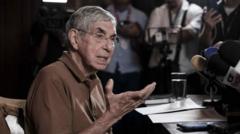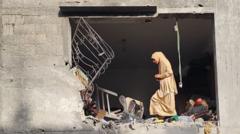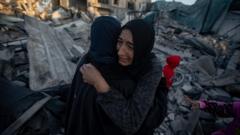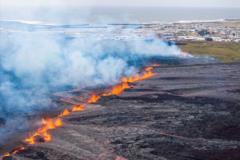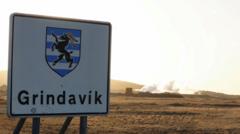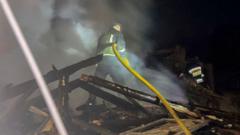As deadly wildfires continue to sweep through Los Angeles, officials report an increasing number of missing persons and fatalities. The situation has sparked political disputes and highlighted controversial firefighting methods involving inmate labor.
Los Angeles Wildfires: Rising Casualties and Political Turmoil

Los Angeles Wildfires: Rising Casualties and Political Turmoil
A series of wildfires ravaging Los Angeles have escalated into a humanitarian crisis, prompting political criticism and raising concerns about emergency preparedness.
As wildfires rage across Los Angeles, the toll has been devastating, with at least 16 confirmed dead and a rising number of missing individuals. Firefighters have made some headway in controlling the situation, particularly with the large Palisades fire, but strong desert winds are anticipated to worsen conditions. Over 100,000 residents remain under evacuation orders as entire neighborhoods have been engulfed by flames.
The Eaton fire, which has claimed at least 11 lives, marks one of the deadliest wildfire events in California's history. Search and rescue teams equipped with cadaver dogs are combing through forested areas and ruined homes, searching for the missing and assessing the extent of the damage.
Political reactions have been fervent, with accusations of inadequate emergency response from California officials. President-elect Donald Trump criticized the state's leadership, branding them "incompetent" in a recent post. Governor Gavin Newsom has pushed back against these claims, suggesting that Trump is exploiting the crisis for political gains.
Complicating the situation is the employment of more than 900 incarcerated individuals assisting firefighting efforts. While California has traditionally depended on inmate labor for wildfire response, this strategy has reignited debate over its ethical implications amid mounting casualties.
As Los Angeles battles these destructive fires, the intersection of environmental crisis and political discourse grows increasingly complex, calling into question the state’s preparedness and the societal impact of using prison labor in such dire circumstances.

